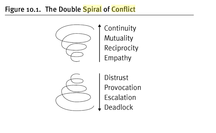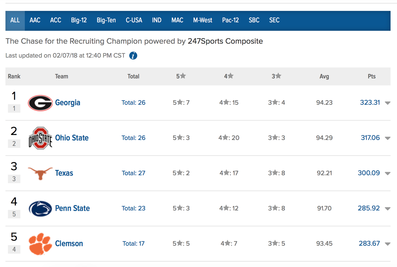 I loved an article that came out today on Forbes by William Vanderbloemen on ways that talented people blow it in an interview. They boil down to punctuality (showing up late), posture (slouching in the chair), and preparation (not doing your homework). Interviews often serve as a first impression, and we only get one, and its impact is lasting. One thing that's inescapable during leadership is walking through the interview process. It's incredibly stressful, I've likened them to a first date, where you're trying to get a read on each other and see if you're compatible. Sometimes you put on such a good face that they don't see the real you, and they neglect to tell you about their baggage (I turned down a position once when I learned the church had recently gone through a scandal of sexual misconduct). So how can you navigate the interview process and find it beneficial and enlightening for you and for the church? 1. Do your homework - They've got your resume and your social media sites. They've looked you up. They've maybe even called your references. They've watched your teaching/preaching online. They've maybe even visited your church. So what does it look like for you to do your homework on a church you're interviewing with? Contact other pastors, especially guys you know, in the area and see what they know of the church. Ask for their most recent budget, bulletin, newsletter, and bylaws. Check out their website and look to see if they have any Google reviews. Find out if they have any debt or skeletons in the closet. 2. Take notes - One time during a face-to-face interview, I wrote down everyone's name around the table so I could have a quick reference guide in case I needed to ask them something. I was so nervous I knew I'd never remember their names. But taking notes goes beyond that, it's where you jot down things that come up in the interview that you want to follow up on, it's where you briefly summarize their answers, and it's where you look back later after you've had time to reflect. Good notes can help you take away more from the interview than you'd ever remember. 3. Be honest - Whenever they ask you a question about your theology, your convictions, why you're looking at leaving your current church, or whatever they ask, you owe it not only to them but to God to be honest. So if they ask about your perspective on Reformed theology and you've got a kid named Calvin Piper, don't wish-wash around it. Or if they ask your convictions on divorce/remarriage and you feel your view might offend, don't duck from your own integrity of conviction. You and your church don't need to agree on everything for it to still be a good match. But it's always a terrible match when you (or they) are dishonest. 4. Prepare questions - Normally in an interview, most of the time is taken with them asking you questions. And then as a customary ending they'll ask you "Do you have any questions for us?" In that moment, the worst thing you can say is "No thank you." This is your time to ask what you need to know. Remember, you're the one potentially relocating your family. You're the one leaving a place God's called you. You're the one who'd be coming in to a new ministry. You're allowed to ask questions. I wrote out 33 questions for my interview with Emmanuel, and I didn't ask all of them because some were answered in the discussions. 5. Find out what they're looking for - Interviews are a great time for you to figure out what exactly they're looking for. You might be a good fit. You might not. So in the interview, explore who they are, what they believe, where they're going, what the vision is, what the history is (by the way, always ask what happened to the previous leader), and what's most important to not only the search team but the church, what their expectations are for your spouse/family. During the interview, you'll learn a profile of what they have in mind. And you'll know if you fit. If not, that's ok! God has His place for you. 6. Follow up - When it's time to hang up the phone, log off Skype, or catch your return flight, find out a timeline on when you can expect to hear back. They owe it to you to be forthright and mindful of the anxiousness of being in limbo between where you're serving now and where God could be moving you. But it's also good to follow up with a thank you note and express your gratitude for being considered and being interviewed. I've done a fair bit of hiring since becoming a lead pastor, and I have kept resumes on file of people who followed up from the interview with a note (even when we turned them down), just in case an opening came up later! What have you done to help succeed in the interview process?
1 Comment
 One of my favorite podcasts is Rainer on Leadership. Their episode today on "Six of the Most Common Reasons for Church Staff Conflict" is incredibly timely for anyone serving alongside other people. Inevitably, whenever you're on a team, there's going to be conflict. Differences of opinion becomes divergent visions. The quirks that were once appealing in the early stages become incredibly frustrating. And the adjustment to a new setting becomes a realization of a lazy work ethic. At the root of most conflict on a team is a lack of chemistry. It's hard to define and describe what chemistry is, and even when I tried writing a book chapter on chemistry the best I could come up with was Friendship, Unity, and Trust. Even that I don't feel like totally captures the essence of chemistry. But we can see it when it's not there. We can see when the players on the bench are disengaged from the game because they don't care. We can see the rolling eyes during a meeting. We can see when times are tough that everyone turns to self-preservation and throws others under a bus.  Ultimately I think most of our conflict comes down to a breakdown in chemistry. We fail to fall back on the Friendships, the Unity, and the Trust that make a great team. Instead we see others as rivals, we're driven by jealousy; or we break into factions; or we build intricate webs of conspiracy and questioning. And because most of us are conflict aversive, we see things spiral out of control until the only way to resolve the conflict is to break the relationship (or in this case see turnover on a staff). So how can we work towards a healthy team with healthy discussion with healthy resolution? 1. Friendships - Remember that no matter what, relationships > being right. If it costs you a team member or an ally or a friend to prove a point, you lost. Any team, especially one that's in ministry, is driven by the strengths of its relationships. And that means you put the relationship first, you put the reconciliation of a relationship first. If not, you're setting yourself up for an implosion. Friendships on a team don't mean that you're always hanging out on the weekends. But it does mean that you enjoy working together. 2. Unity - One of the biggest frustrations and causes of conflict on a church staff is a lack of direction. No one can articulate what the vision is, what the roadmap is. There's a competition for resources, facilities, time, and money. There's no coordination in scheduling. There's no clear process for how things work on a weekly or monthly basis. But beyond systemic or structural unity, there's no personal unity. One of the biggest lessons I've learned as a lead pastor is that I have the unique ability to advocate for my team. If those serving with you should know anything about you, it's that you've got their back. One pastor I served with told me "I'm in your corner, I'll go to bat for you. Unless you steal, commit adultery, or teach heresy." 3. Trust - Trust is so important because trust has the ability to absorb risk. Risk is when we feel like we need to step out in a bold move, make hard decisions, or put in vision. With any kind of risk we have to come back to the team around us and the trust they've put in us. Conflict happens when risk is taken without sufficient trust (reckless leadership), or when sufficient trust is there and risk isn't taken (maintaining the status quo). Conflict can be mitigated on a team when there's a piggy bank of trust built up. And that takes intentional time to get there. It's not automatic, you have to spend time working to build trust so you can absorb risk. How do you and your team help work through conflict with chemistry? Side Note - One of the best resources on church staff conflict is a little booklet by Speed Leas.  Don't panic. We're not going anywhere. I love Emmanuel and I love Florida way too much. But sometimes when we're in ministry we reach a point where we recognize that it's time to go, that the chapter we're in is coming to a close and it's time to see what God is opening up next. Aside from the the obvious ones (being terminated or being recruited--and even those are subjective), what are some ways we can know it's time to go? Leadership Ceiling - Sometimes a leader gets to a point where they've taken a church or ministry as far as they can go. It might be an attendance barrier, a missions ceiling, or a sending limit. But all of us recognize when we're not the best fit anymore. The flip side is when we've taken a church as far as they are willing to go. Either are ways for us to recognize a ceiling. Unable to Follow Vision/Leadership - If you're serving in a second chair or associate role, this can affect you mostly. All of us have to serve where we serve with integrity not only personally with professionally. Part of that means serving with integrity under the leadership of a pastor or elders. When we find ourselves unable to anymore (whether they're issues of character or competence, or sometimes even personality differences), we owe it not only to ourselves but also to the church to begin looking for the next chapter. Theological Changes - I'm not talking about nuanced issues or over really small issues. I'm talking about a church or pastor who abandons or rejects major issues of faith. And it doesn't always have to be a slide towards liberal theology. It can be over secondary theological issues where there is contention or difficulty continuing. For a lot of our churches this discussion centers around Calvinism. It's the pink elephant in the room. Holy Angst - Many times God gives us a new burden, a new vision, a new assignment. And we recognize that we're given a "holy angst" for the burden from God. Many times it comes from someone who's served as an associate pastor who now has a longing and desire to be a lead pastor. Or it can come from someone who wants to transition from an event-driven student ministry to more of a family equipping model. That holy angst comes from a desire for us to be faithful to the calling God's given us, and for us to serve where we'll be most effective. Ultimately the decision and longing to leave where you're serving is between you (and your spouse!) and God. Leaving for greener grass or a bigger paycheck is never what you think it is. The reason the grass is so green is because it's well fertilized. And like the 90s rap song said, more money more problems. But a God-given, God-honoring longing for greater and more effective service can be an incredible open door for ministry!  This past Sunday we were talking about giving, and I felt it important to take time to address the issue of the Prosperity Gospel and how it corrupts our witness by promising stuff over Jesus. So anyway, I was "in the groove" and was going on and on about the supremacy of Christ and all that, and then to drop the hammer I said "I don't know how else to say it, I hate the Gospel.... The Prosperity Gospel." Luckily I got it corrected, but for a second there I had just told a packed room of people I hated the very good news that brought us all together. I flubbed. And thankfully no one threw rocks at me. If you're serving in leadership, you're going to flub. You're going to flub in front of a lot of people. It's going to be embarrassing. People will laugh. You may not. But they will. You'll mess up an email or a text message. It's inevitable. So when you do, here's how you can respond: 1. Embrace it - You laid an egg. Step back and enjoy it. One day you'll laugh about it. I've seen speakers on a national platform make a mistake. Everyone remembers Senator Rubio getting a case of cottonmouth and needing water after the State of the Union. Join the club, you made a mistake.  2. Remember you're not perfect - It happens sometimes I think as a reminder of our imperfection, our need for grace, and a way to deflate whatever ego has been blown up. So often we can fall victim to a performance mindset that makes us focus on our transitions, presence, and all of the nuances so what comes off is flawless. Flubs remind us like John Piper says, we are not professionals. 3. Let it go - You can't fix it, you can't take it back. Laugh it off and move on. It could always be worse, you could be this guy. Dwelling on your mistakes, even if they're funny, is a distraction that keeps you from focusing on what's important. 4. Learn from it - Sometimes we make flubs because our brain isn't firing as fast as our mouth. Other times we flub because we're being stupid, rushing, or not taking in fully what's going on. What's your best flub as a leader? How'd you bounce back from it? 
For the last few years I've spent a lot of time and energy looking at the path of ministry leadership, especially as we see the transition from Boomers to Millennials as the dominant force. We're seeing a large number of Millennials (under 40) stepping into ministry leadership roles.
The reality is that while our seminaries are strong and we live in a golden age of publishing, we can always be sharpened. Many of us in leadership are engaged on social media, podcasting, networking with our colleagues, and more. We know we need to be better, sharper, trained more, so we can be the servant leaders God has called us to be. If we want to see our churches continue to thrive in faithfulness and effectiveness, it's essential we pour into our younger leaders--those who are serving in ministry leadership and those who are in Bible college or seminary. That's where the podcast comes in. Starting on March 1, every week I'll be releasing a podcast designed for those of you under 40 who are serving in ministry. I want the conversation to be fun, encouraging, and practical. Join us on Twitter. You'll be able to find the podcast on iTunes and Google Play. For a preview, check out "Episode 0" on getting off to a good start in ministry.  Full disclosure, I'm a fan of a school that has only recently discovered football. When I was a kid, Louisville football tickets were something that came with a full tank of gas. Big teams used us as their homecoming, and we used them for "paycheck" games. Then new vision and leadership propelled them to a Heisman Trophy winner, big bowl wins, and a national platform. It's pretty cool. At the center of everything in the college football universe is Signing Day. This is the day where hot prospects from across the country put on ball caps, throw on a shirt, or announce on YouTube where they'll play college football. For fans of the big time college football programs, the first Wednesday in February is a day of optimism or despair. The decisions of 17 and 18 year olds can have a ripple effect through an entire fan base, and many coaches recognize the stability of their job depends on their ability to bring in the biggest and best classes in February, 7 months before games are ever played. So what does National Signing Day teach us about leadership? 1. Leaders must relentless pursue the future. It'd be so easy for successful coaches and successful programs to sit on their wins and rosters. But the difference between those programs and the programs who have a good year every now and then are that the top schools are constantly recruiting at a high level. In ministry, we mustn't ever become satisfied with the status quo. We must always find ways to improve, to get better, to be more effective, to be more faithful. 2. The right people matter. Look at the top classes, those schools are almost always the top classes. And those top players are part of those teams because of their impact and ability. If we want our churches to be fruitful, we have to recognize the importance of making sure the right people are on board. Talent matters. So does fit. So does chemistry. So does character. Along with the top recruits every year are the top busts of previous years. Touted players who flamed out because of off-the-field issues, players whose work ethic caused them to drop down the depth chart. Not only do we need to build our staff and volunteers with talent, we need to make sure they're right. That's why when Paul lays out the qualifications for pastoral ministry, character > ability. 3. Adjustments are part of the journey. Sometimes a player a coach thought he had for sure backs out and signs with a rival. That happens to everybody. Recently news broke that Alabama lost a quarterback recruit to Princeton. It's surprising. But that's where coaches adjust their plans and keep their focus on the vision. As leaders, we'll be surprised. The plans we spend months on may unravel in front of us. We've got to be able to adjust and move forward, trusting God's Spirit and the wisdom of others around us. 4. The results may take time. Every year there are players who aren't highly recruited coming out of high school. Lamar Jackson, who won the Heisman at Louisville, was a 4-star recruit, but he was ranked 248 in the entire country. Sometimes players take time to mature, sometimes you get surprised. You never know who might be around you who will surprise you. You might have someone who's quiet, who's a new believer, or someone who's been overlooked that may turn into an incredible ministry leader. The thing that brings them out is intentional development, where you invest in them and help them grow. So if you're a Georgia fan, congrats on finishing with the top class this year. And Cardinals fans, we've got the highest ranked class in program history. Not a bad day. |
Scott M. DouglasA blog about leadership and the lasting legacy of family ministry. Archives
August 2023
Categories
All
|
 RSS Feed
RSS Feed



